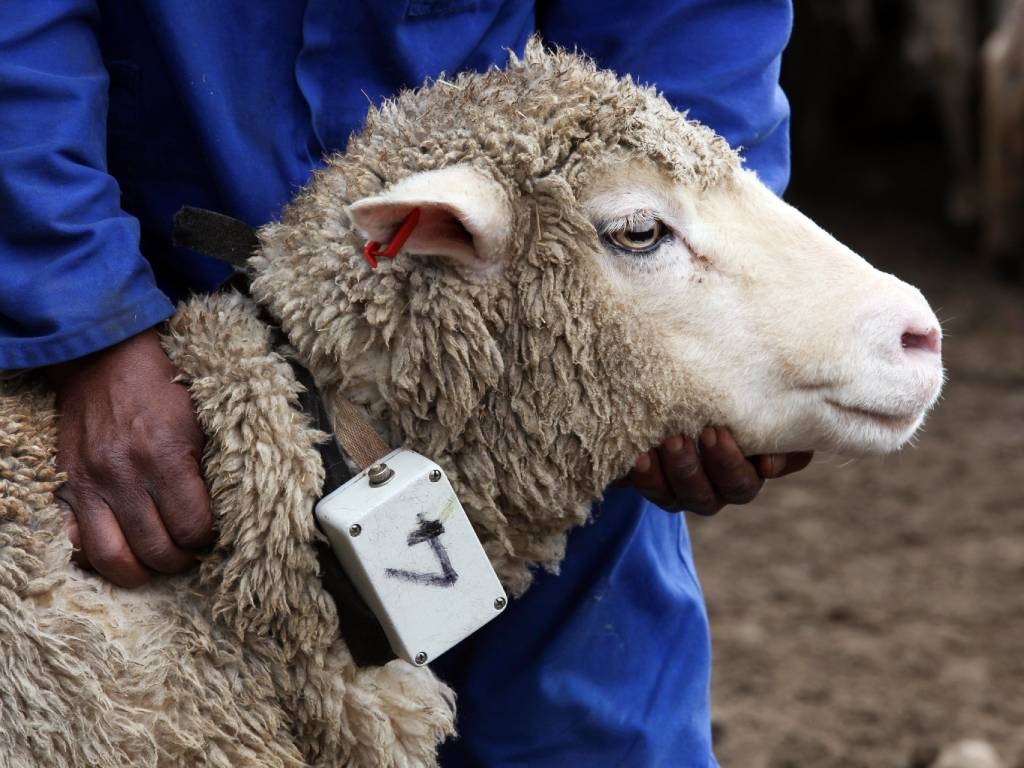
A feedlot manager of Ntabozuko near East London in the Eastern Cape put 126 export sheep rams through excruciating pain by sawing off their horns with an angle grinder, causing the blood to flow, says the National Society for the Prevention of Cruelty to Animals (SPCA).
The horns of the animals, which were to be exported to Kuwait in the Persian Gulf, were wider than the permitted guidelines for export by sea. Horns that are sharp, or that are wider than the widest part of the animal, may not be exported.
READ: ‘Basic’ legislation costs animals their lives
The solution to the problem by the manager of the export company, Al Mawashi, was to slice the horns off - through the nerves, blood vessels and soft tissue. He was arrested and has already appeared in court.
Nazareth Appalsamy, senior inspector of the SPCA, said he carried out a routine inspection at the feedlot hours before the incident in July.
The SPCA was concerned about the welfare of the animals and whether they were ready for export and said the exporter was determined to load them onto the Al Messilah ship. The SPCA then approached the High Court in Makhanda (Grahamstown) to get an urgent interdict to stop the export.
READ: NSPCA to probe shooting and killing of tiger escapee, Sheba
Appalsamy left the feedlot on the evening of July 26 at 7.30pm and forbade the manager to cut off the rams' horns. When he got back to the feedlot the next morning at 6.30, the rams were bleeding. He said:
"When I asked the feedlot manager why they continued, and moreover at night, he said because we prevented them."
The tips of horns can be made slightly shorter without causing suffering to the animals, but then only the tips are sawn off where there is no feeling.
In this case, it looks as if Al Mawashi used an angle grinder, says Appalsamy.
This was after the SPCA approached the High Court in Makhanda the day before for an urgent court interdict to prevent the sheep from being loaded until they complied with the government and state veterinary department's guidelines. An interim order was granted, which prevented the loading of the animals. A presiding judge found the case not urgent the next day.
Appalsamy said the company did not provide any pain relief for the animals, adding:
The SPCA confiscated the sheep and they are being cared for in an unknown place.
Al Mawashi was in the news in 2020 when the SPCA also approached the court to stop a shipment of 80 000 sheep from the Eastern Cape to Kuwait. At the time, the animal organisation said the sheep were not being cared for properly, but Al Mawashi denied the allegations.
READ: PHOTOS | The dilemma of loving a pit bull
The High Court rejected the SPCA's application for an interdict in 2021 and the sheep were then exported.
However, the department of agriculture, land reform and rural development is clear in its guidelines for the export of live sheep, goats and cattle regarding nutrition, physical and social environment, health, and behavioural assessments of the mental state of the animal.
According to reports, Al Mawashi transported 56 02 animals out of the area by ship in 2019, 108 923 in 2020 and 57 838 in 2021. Sake van der Wal, head of business development at Al Mawashi, said on Friday that their ship, the Al Messilah, was equipped with some of the best technology to make the journey comfortable. Van der Wal mentioned:
He said in 2019, they exported 54 000 sheep, 88 of which died - a death rate of 0.16%.
In 2020, they exported 111 000 sheep with a death rate of around 0.14% and in July this year, 50 of the 38 000 sheep that were loaded died or at a rate of 0.13%.
In August 2020, 60 sheep out of 54 000 died – a death rate of 0.11% and in July 2021, 88 sheep out of 56 000 died. He stated:
He did not comment on a question about cutting off the horns.
Leon de Beer, national general manager of the Wool Growers Association, says the horns cause problems when animals gather in a small area, such as on the back of a truck. He explains:
De Beer says a qualified veterinarian is supposed to perform this procedure under anaesthetic: "This does not comply with best practice."




 Publications
Publications
 Partners
Partners









